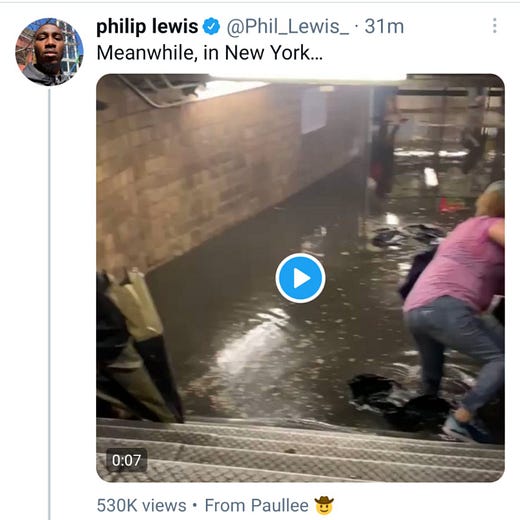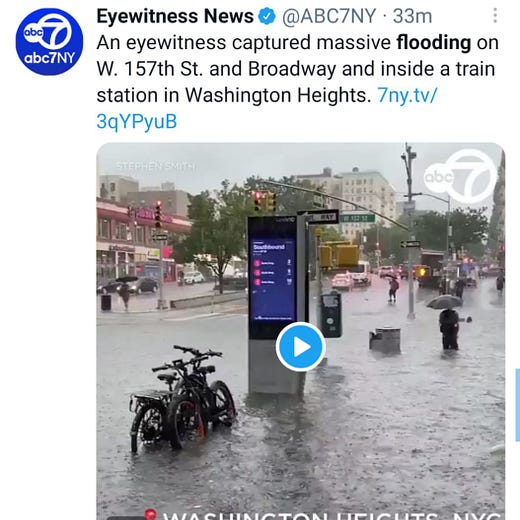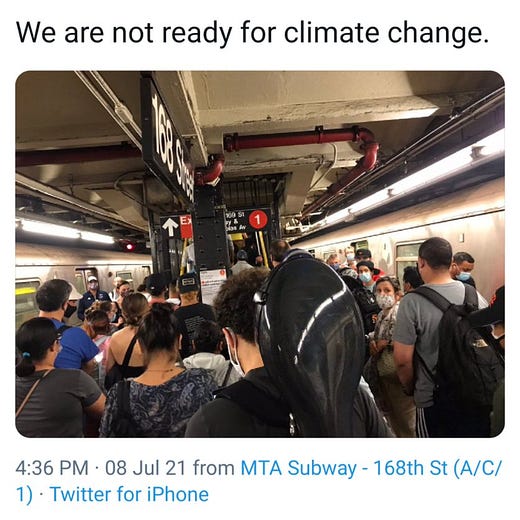Internet Makes a Home
Step one, unpack. Step two, wait on hold. Step three, wait on hold again.
After weeks of being in transit, I’ve finally landed in one place. It’s been weeks of packing and then weeks of being on the move and a lot of transitions, so it feels great to have a desk and a real keyboard!
Of course, like any person who moves to a new place, I had to take care of the basics first. Figuring out where things are. Getting a sense of the local restaurants and shops. Meeting a few new neighb—
Who am I kidding? First order of business was getting internet installed.
I called the service that people in my building said worked well (there were only two available). I knew exactly what I wanted. I had to fight the representative for a long time to get to be able to order internet—she kept wanting to talk about my TV viewing habits, presumably to upsell TV service. And some other services that I couldn’t care less about. I kept politely saying “thank you, no thank you, I’d like this tier of internet service plea—” while getting interrupted with demands for discussing my TV viewing habits. Apparently, it’s not just that she has to read the lengthy options in a cheery voice to me before I can be allowed to purchase what I wanted, but that I have to answer in detail.
Finally, after a lengthy call that was getting genuine hostile (she wouldn’t or couldn’t take “I don’t watch TV or want to discuss my TV viewing habits, can you please take my order for internet service” for an answer).
I’m still a third-world person at heart, I guess, so I know one must endure the rituals.
Finally, I was allowed the honor of giving my address and credit card information where they could mail a modem, with instructions for me to install them myself.
Success! Of sorts.
Immediately, I got my first bill over email—you can see below. It’s Spectrum, essentially a mass media and TV company, which had acquired Time Warner Cable in 2016. (Which is why it is now offering internet where I live).
Anyway, a quick look! First, the service I actually asked for is there, but twice. There is internet for $74.99 but also internet “ultra” for $20—I had tried to sign up for Internet Ultra that was supposed to be $49.99 total. Then there is a discount (fine, that’s how they operate) but the weirdo $20 extra charge is still there.
Of course, before even getting to be allowed to order internet, I was on hold a few times. A cheery message kept saying “no hidden fees” and “ask your representative today for blah blah” but that bill looks like it has a lot of hidden fees to me.
Along with the modem, company also sent a router (which I did not ask for). A later call confirmed that the $5 would be a router rental fee. To be paid in perpetuity for a router that I believe is is probably less than $50 for consumer purchase price (probably much less for the company to purchase).
Plus they charge $9.99 for service activation (that I did myself and involved plugging it in and waiting a minute) and a $9.99 fee for WiFi activation (which is crazier because there is nothing to activate there—just plug in a router, any router. I guess they charge this if you plug in their router, like a corking fee?).
Old monopoly phone companies used to charge people for “leasing” the phone equipment, which was both financially and technically terrible. Here’s the Wikipedia explanation of AT&T used to do it, which is pretty accurate:
AT&T increased its control of the telephone system through its leasing arrangements for telephones and telephone equipment made by its subsidiary, Western Electric. Like most telephones of the time in the United States, Western Electric-made phones were owned not by individual customers, but by local Bell System telephone companies — all of which were in turn owned by AT&T, which also owned Western Electric itself. Each phone was leased from AT&T on a monthly basis by customers, who generally paid for their phone and its connection many times over in cumulative lease fees. This monopoly made millions of extra dollars for AT&T, which had the secondary effect of greatly limiting phone choices and styles. AT&T strictly enforced policies against buying and using phones by other manufacturers that had not first been transferred to and re-rented from the local Bell monopoly. Many phones made by Western Electric thus carried the following disclaimer permanently molded into their housings: "BELL SYSTEM PROPERTY — NOT FOR SALE." Telephones were also labeled with a sticker marking the Bell Operating Company that owned the telephone.
In 1968, the Federal Communications Commission allowed the Carterfone and other devices to be connected directly to the AT&T network, as long as they did not cause damage to the system. This ruling (13 F.C.C.2d 420) created the possibility of selling devices that could connect to the phone system and opened up the market to numerous products, including answering machines, fax machines, cordless phones, computer modems and the early, dialup Internet.
In the 1980s, after some consumers began buying phones from other manufacturers anyway, AT&T changed its policy by selling customers the phone's housing, retaining ownership of the mechanical components — which still required paying AT&T a monthly leasing fee.
So, I called Spectrum. This time, again after waiting on hold for a long time where I was assured there were no “hidden fees”, I got a very polite employee who clearly understood how screwed up things were. So yes, I was sent a router (unasked) that I would be billed for in perpetuity. To stop this, I need to return the equipment (at my own time and dime). She was puzzled why there were so many activation fees (but clearly standard part of the procedure). More holds and clicks followed. Some were cancelled. Others would be credited be back. (Or so I was told).
And I moved to New York City! There have been many articles (and not enough attention) on rural broadband options (or lack thereof) but even saying “rural” overstates the extent of the problem. Move just a bit outside of big cities, and the options and speed dwindle quickly while the price goes way up.
On a related note: there were also some heavy rains in New York last night—not that bad by any normal standard I’m used to, but it was rain for real.
That apparently resulted in this:m
How is this related? It’s just incredible for me to comprehend how such a wealthy nation lets its infrastructure get to this point. It’s baffled me for years now. Every time I encounter it, I just shake my head because I know that, unlike many countries that are trapped by poverty and lack of resources and power in the world the United States is a wealthy, powerful country and has all the scientific and technical know-how it would need, were it to decide to get a handle on all this.
And yet we do not.
Still, I moved to New York City. Which is exciting and wonderful! But I can’t resist thinking about infrastructure, especially in the context of cities, so that’s my first post on a for real keyboard (not a laptop) from my new internet (which does work).








I'd some similar thoughts a day or two ago about the few monopolistic companies that control consumer internet access these days. I was reminded of an old SNL skit which at about 45 years old, is still relevant with the tagline "We're the phone company, we don't care". I didn't actually see it when it came out as I was just 2 1/2 months old at the time. https://vimeo.com/355556831
Still funny that even with technology, history repeats.
Ah, Zeynep. First of all, how can you call them "hidden fees" when they are hidden in plain sight? Consider how fortunate you are to overpay for something that 40% of New York City residents can't afford, and that would be substantially cheaper if you got it, say, Indonesia. But as Andre Gregory said in the movie, My Dinner with Andre, Manhattan is a concentration camp where all the inmates have convinced themselves there is no better place in the world to live, so welcome, welcome! But one thing about the flooded subway pics you shared--while it is distressing to have to walk through a few feet of water to get to one's train, I need to point out that in the background of the first clip you shared, you can clearly see the train arriving on the platform. That is true NY grit on display.